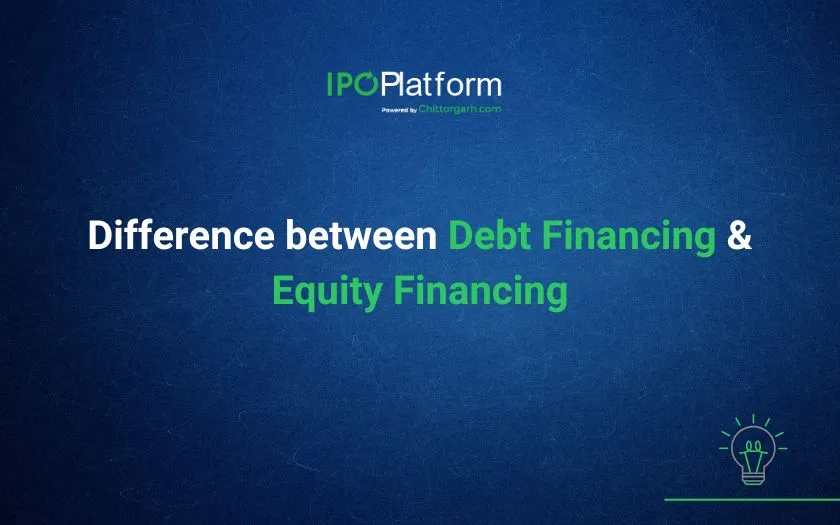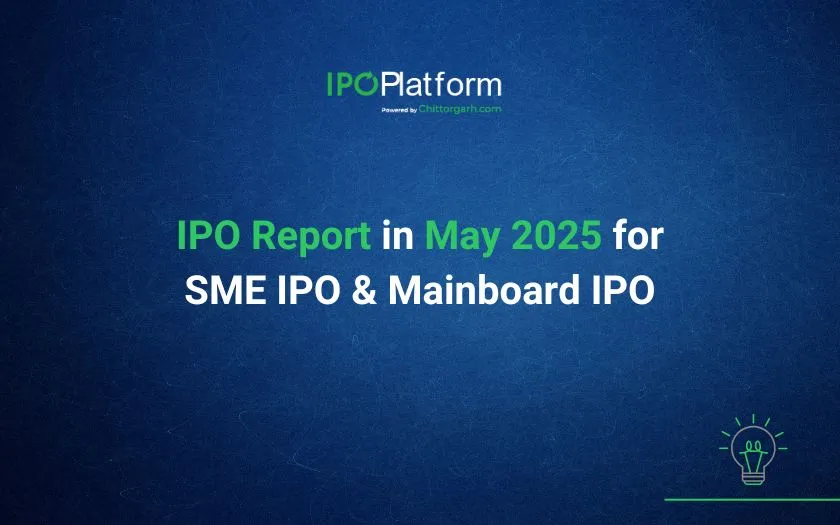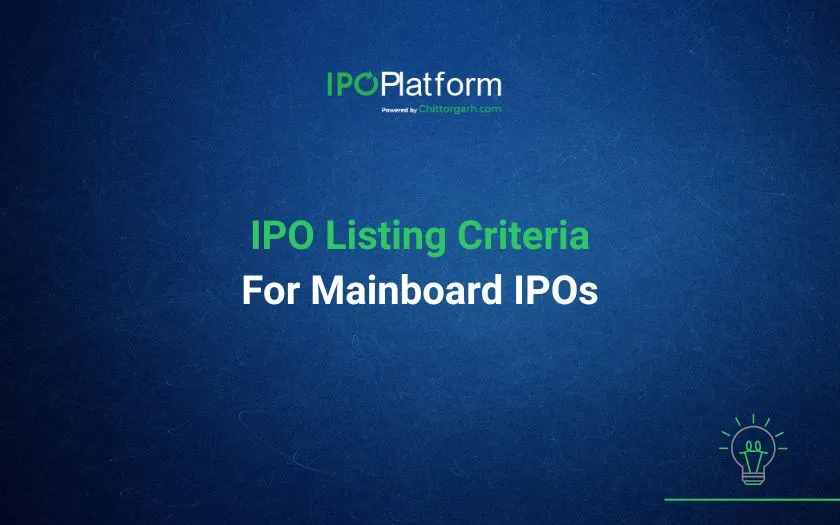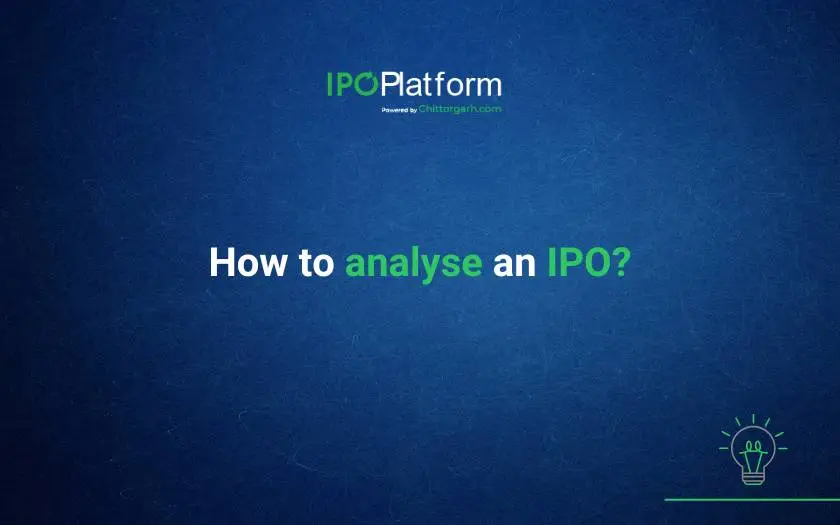Difference between Debt Financing and Equity Financing

For any business to grow, funding is critical—whether it’s for scaling operations, entering new markets, or investing in innovation. Companies can raise capital primarily through two broad avenues: equity and debt. Equity funding involves giving up partial ownership in exchange for capital, while debt funding allows businesses to borrow funds with an obligation to repay. This article explores both funding types, compares their advantages and limitations, and helps investors and businesses understand which route best aligns with their goals.
What is equity funding?
A company needs funding to meet its growth objectives and expansion plans. When a company raises funds in exchange of selling some part of its ownership to the investors, it is called equity financing. In simpler terms, Investors who give funds/finance to the company become part-owners in a company and participate in the benefits or profits from the company’s future growth. There are many ways of equity funding. Some prominent ways include:
- Angel funding- Refers to initial seed money for start-up businesses. Angel investors use their own net worth to invest.
- Private Equity and Venture capital funding- Private equity funding or venture capital funding refers to investments made in private companies from pooled funds of investors.
- Initial Public Offer (IPO)- IPO refers to raise funds by selling the shares in the public for the first time. A company has to comply with the IPO eligibility criteria as laid by BSE and NSE, stock exchanges of India. A company can go for either Mainboard IPO or SME IPO.
- Follow on Public offer (FPO)- This option is available to the listed companies. A follow on Public offer is another fund raise from the public in the form of more share issuance.
- Other Equity-Oriented instruments
What role does Investment Banker play in successful IPO?
Investment bankers play a critical role in capital raising through both equity and debt financing. From equity placement via IPOs or private equity to debt syndication and structured finance solutions, they guide companies in selecting optimal instruments aligned with their growth strategy. A trusted investment banker assists in IPO readiness, valuation, regulatory compliance, and choosing the right fundraising route—be it SME IPO, Mainboard IPO, bonds, or debentures. Their expertise ensures effective fundraising and long-term corporate finance planning.
Whether you’re an SME or a growing enterprise, a seasoned investment banker helps navigate investor segmentation—QIBs, NIIs/HNIs, RIIs, and Anchor Investors—and matches your business with suitable funding avenues. Their advisory ensures compliance with SEBI regulations, maximizes visibility among institutional investors, and secures competitive deal structuring.
Guides SMEs in selecting suitable, experienced bankers.
What is debt funding?
Debt funding is a type of fund-raise by borrowing money from investors, financial institutions or other lenders. Borrowing involves repayment of principal and interest as per the debt schedules. Debt funding does not involve any dilution of ownership of the company and no interference in the decision making. Types of debt funding:
- Bank Loans
- Term Loans
- Bonds
- Debentures
- Working Capital Loans
- Invoice financing
What is the difference between Equity Funding and Debt Funding?
|
Parameters |
Equity Funding |
Debt Funding |
|---|---|---|
|
Ownership |
Source of funds raise by diluting the ownership of the company |
Source of funds raise through borrowings without offering any share in the company. |
|
Repayment |
There is no obligation to repay the capital to the owner of equity shares provided during exit. |
There is an obligation of fixed repayments (principal + interest) to the investors as per the instrument. |
|
Control |
Investors/shareholders may get control over the affairs of the company through the voting rights. |
Investors in debt do not have any control as there are no voting rights available to them. |
|
Risk and return to investors |
Risks and returns varies from moderate to high. Though there are no fixed returns for investors. |
Offers stable returns to investors. |
|
Investor networks |
Company benefits with accredited investors coming into the company. |
Company benefits with tax deduction on interests, lowers the effective cost of capital. |
|
Types |
Angel funding, Venture Capital funding, IPO, FPO and other equity oriented instruments. |
Bonds, Non-Convertible debentures (NCD), other fixed instruments. |
Advantages of equity funding for companies
- No Repayment Obligation: Unlike debt financing, the organization/issuing entity do not need to repay investors, reducing financial burden. It does not involve any fixed interest payments or loan obligations, making it ideal for start-ups and growing companies.
- Access to Expertise & Networks: Investors often bring industry knowledge, strategic guidance, and valuable connections.
- Long-Term Growth Support: Investors focus on long-term success rather than immediate returns, allowing businesses to scale sustainably.
- Improved Cash Flow: Equity funding does not involve interest or loan repayments, and businesses can allocate funds toward expansion and operations.
- Stronger Credibility: Equity investors in the form of reputable investors in businesses enhance the market confidence and attracts further investments.
Advantages of equity funding for the Investors
- High Returns- Investors in equity usually get higher returns as the risks attached are also higher.
- Early entry in the growth-oriented companies- Investors who take ownership of a company at an early stage reap the benefits of growth cycle in the company.
- Wealth Creation- Equity investments have the potential of wealth creation in terms of capital appreciation.
- Dividend Income- Investors receive dividend income and also provides inflation protection to investors. Dividend income varies and rises with the profit earning capability of the company.
Disadvantages of Equity Funding
From the Company's Perspective
- Loss of Ownership & Control: Issuing equity means sharing ownership with investors, which may dilute decision-making power.
- Profit Sharing: Financing through Equity results in sharing profits through dividend pay-outs instead of retaining the earnings.
- Potential Conflicts: Shareholders may have different expectations and push for short-term gains over long-term growth.
- Expensive in the Long Run: If the company grows significantly, the cost of giving away equity can be much higher than debt interest.
- Market Pressure: Public companies face scrutiny from investors, analysts, and regulators, which may influence strategic decisions.
From the Investor's Perspective
- High Risk, No Guaranteed Returns: Investors in equity may face stock price fluctuations. In case a company underperforms, equity investors suffer due to lower or negligible returns.
- Risk and Returns: There is an uncertainty in returns for equity investors as the returns are directly linked to the company’s performance. Unlike debt investors, equity investors do not get fixed returns.
- Limited Control: Unless owning a significant stake, most investors have limited influence on company decisions.
- Market Volatility: External economic factors can impact the stock performance, sometimes beyond a company’s control.
- Preference to Debt instruments- Debt instrument holders have the first right of repayment when there is an insolvency of the company.
Advantages of Debt funding
For Investors:
- Fixed Returns: Investors receive regular interest payments, ensuring predictable income.
- Lower Risk: Debt instruments are generally less volatile than equity investments.
- Priority in Repayment: In case of liquidation, debt holders are paid before equity shareholders.
- Diversification: Provides a stable investment option alongside equity holdings.
- Tax Benefits: Interest income may be eligible for tax deductions in certain cases.
For Companies:
- Ownership Retention: Debt financing does not dilute ownership of the company.
- Tax-Deductible Interest: Interest payments on debt are tax-deductible so it decreases the overall cost of capital.
- Flexible Financing Options: Companies can choose short-term or long-term debt based on their needs.
- Boosts Creditworthiness: Timely repayment of debt improves the company’s credit rating, making future borrowing easier.
Disadvantages of Debt Funding
From the Company's Perspective
- Repayment Obligation: Debt must be repaid regardless of company performance, which can strain finances during downturns.
- Interest Payments: Debt funds involve regular interest payments that may reduce the operating cash flow for growth opportunities.
- Impact on Creditworthiness: Any default in repayment affects the creditworthiness of a company and limits its future borrowing.
- Collateral Requirements: Secured debt funding requires collaterals in the form of land, property and factory.
- Debt Covenants: Lenders may impose restrictive conditions that might limit the decision-making or expansion plans.
From the Investor's Perspective
- Lower Returns Compared to Equity: Investors in fixed instruments receive fixed interest and thus they may miss out on potential growth. Investors do not share in the company's success beyond interest payments.
- Inflation Risk: Inflationary pressures reduce the effective returns on debt products.
- Default Risk: If the company faces financial trouble, there’s a risk of missed payments or default.
- Market Interest Rate Sensitivity: Rising interest rates can affect the value of fixed-income investments.
Which Funding option should an Investor choose?
Equity funding is suitable when an investor's expectations include:
- Ownership and control in the company
- Aim for long-term capital appreciation and growth in the investment.
Debt Funding is suitable when an investor’s expectations involve:
- Fixed and regular income.
- Risk-free investments with timely and secure returns.
FAQs on Equity Funding and Debt Funding
Q. What is the difference between debt funding and equity funding?
When a company raises funds through borrowing it is called debt funding. Equity funding is raising funds by selling certain percentage of ownership in a company by promoters. Equity funding does not require periodic payments as is the case with debt funding
Q. What is equity and borrowed funds?
Equity financing is when investors own a share in a company in lieu of infusing funds in a company. When investors lend to a company in the form of bonds, debentures, NCD, it is called debt financing.
Q. What is meant by equity funding?
Equity funding is raising funds through dilution of stake in the company. It involves no interest payments. The equity investors participate in the profits of the company in the form of dividends.
Q. What are the types of equity funding?
Method of raising funds through private equity, venture capital, IPO and other equity instruments is known as equity funding.
Q. Is IPO debt or equity?
IPO is initial public offer. It can be both of equity and debt. When the shares are sold for the first time in the public it is called listing. Debt IPOs are generally in the form of NCD listing.
Q. Is IPO a type of funding?
Yes, IPO is funding through primary markets. There are two types of IPO in equity, SME IPO and Mainboard IPO on NSE and BSE.
Q. Is IPO equity financing?
IPO is a type of equity financing where a company has to fulfill the IPO Eligibility criteria of SEBI and NSE SME or BSE SME.









0 Comments